The story of Mrs. Vo Thi Lan, the founder of Tam Lan herbal tea, is an inspiring one. At the age of 60, she embarked on a journey to sell herbal tea, much like Colonel Harland Sanders, who founded KFC at the age of 65. However, unlike Colonel Sanders, who experienced bankruptcy at 60 and faced 1009 failures before succeeding, Mrs. Lan’s journey began out of sheer boredom.
Prior to turning 60, Mrs. Lan’s life resembled that of many women in rural Vietnam. She was responsible for raising her six younger siblings after her mother’s early demise and went on to have ten children of her own, all of whom she raised successfully despite her husband’s early passing.
As she entered her 50s, Mrs. Lan began to suffer from various health issues common among elderly individuals, such as diabetes, high blood pressure, and liver and blood-related problems. Her condition was so severe that her children insisted she stay in the hospital during the Tet holiday, fearing for her health.
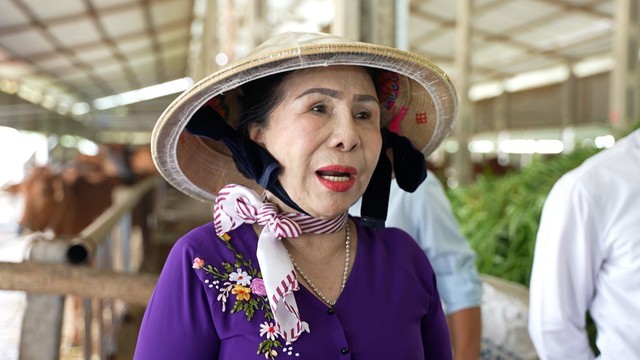
Mrs. Vo Thi Lan, Founder and CEO of Tam Lan Tea
However, Mrs. Lan had other plans. She recalled her father’s profession as a traditional medicine practitioner and decided to try his remedies. To her surprise, her health improved significantly after the Tet holiday, and she refused to return to the hospital despite her children’s pleas. Instead, she began experimenting with herbal remedies and shared them with her neighbors, who also experienced positive results.
This success inspired Mrs. Lan to start selling herbal tea, despite strong opposition from her twenty sons- and daughters-in-law. Her ten children tried to dissuade her, arguing that she should enjoy her retirement and let them provide for her financially. Undeterred, Mrs. Lan believed in the quality of her product and confidently took her herbal tea to every corner of the market.
While she faced numerous challenges in the initial stages, her perseverance and determination paid off. After two years, she achieved her first successes, and in 2010, her children joined forces with her to establish the Tam Lan Tea company.
A Prophecy from Her Ten Children and the Journey Towards a Circular Economy
Soon after the company’s formation, Tam Lan Tea faced a major crisis. From late 2010 to 2012, the company was plagued by negative media attention, facing accusations of false advertising, misleading product quality claims, and selling products without proper labeling.
As a family-run business, many of Mrs. Lan’s children held positions as deputy directors, but their lack of formal business experience led to challenges in the competitive market.
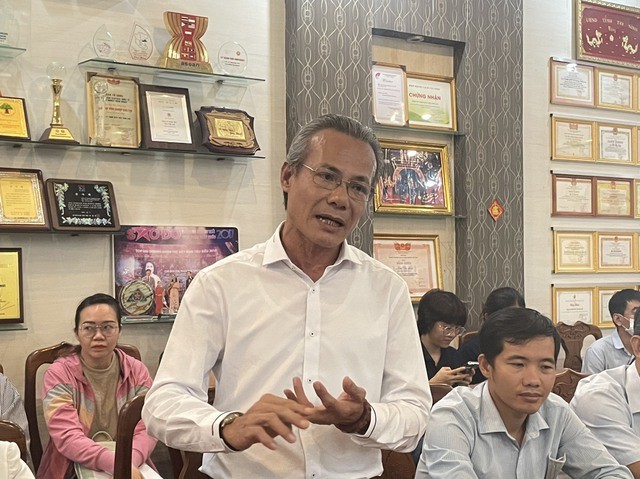
Mr. Nguyen The Tan, Deputy Director of Tam Lan Tea Company
The company faced a significant public relations crisis, but thanks to the advice of some supportive journalists, they organized a press conference to address the issues and survived the ordeal. This experience taught Mrs. Lan the importance of adhering to quality standards and building their own raw material supply chain, especially for a food product like herbal tea.
Mrs. Lan began to focus on creating a self-sufficient ecosystem for the company. She learned how to make effective compost by visiting various places and studying the process. Today, Tam Lan Tea has a 50-hectare growing area, with some areas dedicated to intercropping, where they grow medicinal herbs and rice. The rice straw is used to feed cattle, and the combination of cattle manure and straw is used to feed earthworms, eventually producing compost.
The company also maintains a herd of 500 cows, mainly of the local breed, to produce manure. To keep the cows calm and prevent them from wandering into the fields, they are often treated to traditional music.
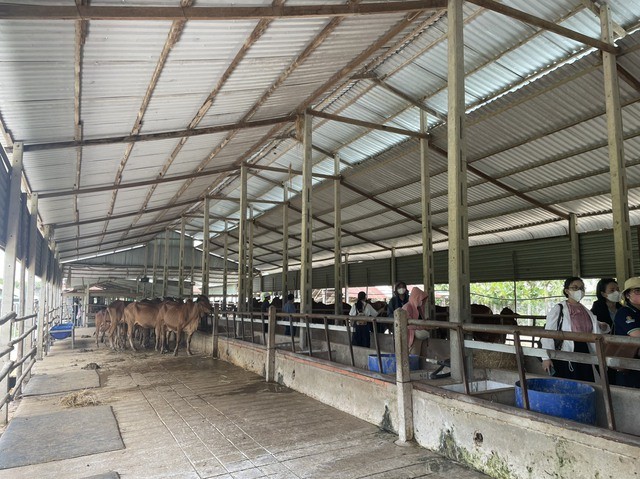
Tam Lan Tea’s cow farm within the growing area.
After 16 years of development, Tam Lan Tea’s product line remains simple, with only five varieties of tea bags: Black Tea, Vo Tea, Spoon Tea, Dinh Lang Tea, and Tam Lan Filter Tea. The company recently introduced Vo Tea and announced a price increase of 10,000 VND for their products at the end of 2022.
Despite their modest product range, Tam Lan Tea has invested significantly in their ecosystem. Their assets include the vast growing area and large cattle herd mentioned earlier, as well as a complex consisting of a rest stop, nursery, staff quarters, and a 100-billion-VND factory located on Road 784 in Cau Khoi, Duong Minh Chau.
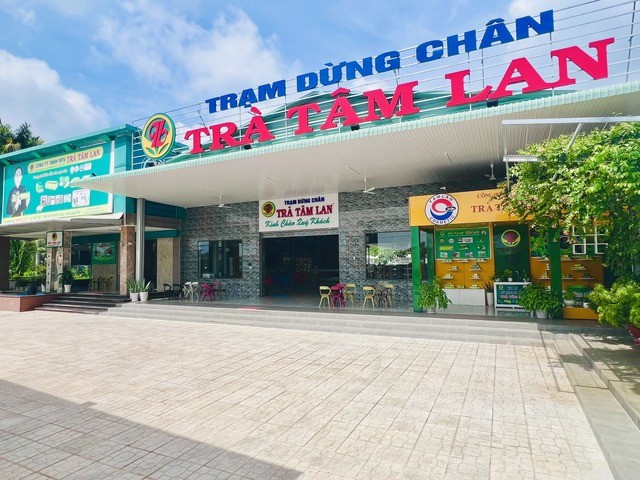
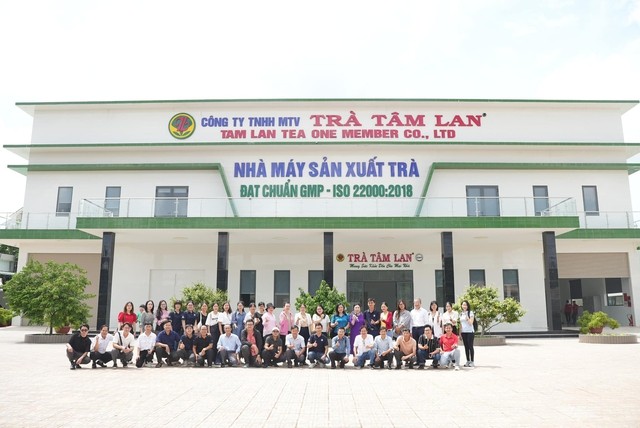
Tam Lan Tea’s complex, including the rest stop, nursery, staff quarters, and factory on Road 784 in Cau Khoi, Duong Minh Chau.
Mrs. Lan’s daughter, Ms. Bui Thi Phuong Thuy, who serves as the Deputy Director of Business at Tam Lan Tea, shared that the factory boasts a nearly 100% automated process, with only the tea-bagging stage requiring significant human involvement. The factory adheres to GMP and ISO 22000:2018 standards, and the dust collected from the cutting and grinding processes is recycled as cattle feed to boost their immunity.
Challenges in the Face of Reduced Consumer Demand
According to Mrs. Lan, Tam Lan Tea has distributors across Vietnam and has exported its products to markets such as Cambodia, Malaysia, South Korea, France, and the United States. However, these exports are indirect, as they sell to local traders rather than directly to overseas markets.
While they are open to all opportunities, Ms. Thuy acknowledges that meeting different quality standards for various markets, such as the FDA requirements for the US market, is not an easy task.
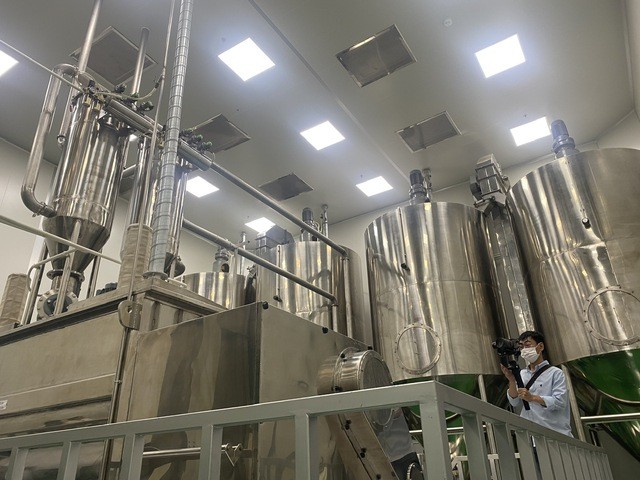
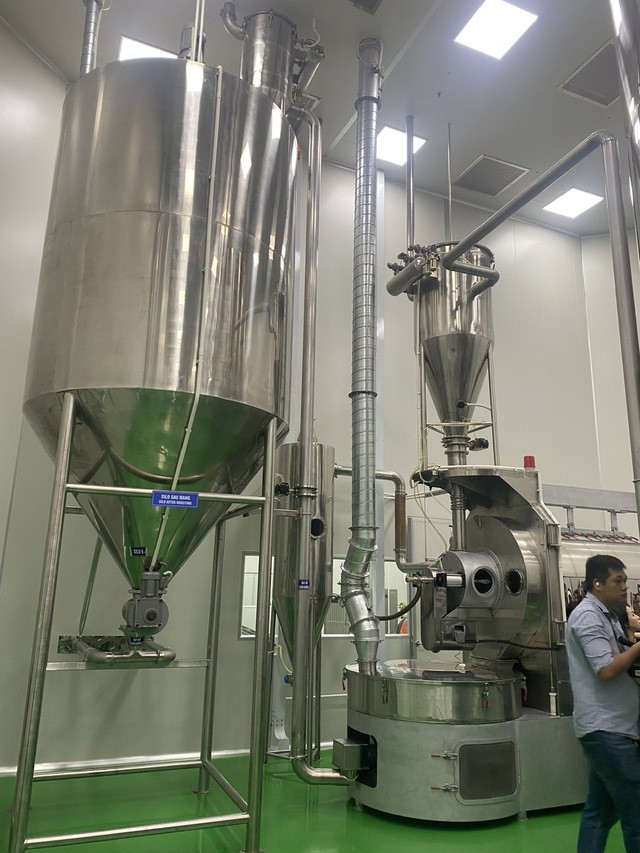
The exterior of the Tam Lan Tea factory.
Another challenge for Tam Lan Tea was the timing of their factory construction, which coincided with the COVID-19 pandemic. As a result, the completion of the factory took longer than expected, and they have only recently started production. However, Mrs. Lan expressed concern about the current economic climate, as their products are not considered essential, and consumer demand has decreased significantly.
With a nearly 50% drop in sales, the factory is operating at a minimal level, utilizing only 20 hectares of their 50-hectare growing area. Tam Lan Tea is doing its best to stay afloat, but Mrs. Lan worries about the long-term sustainability of the business if the situation persists.












